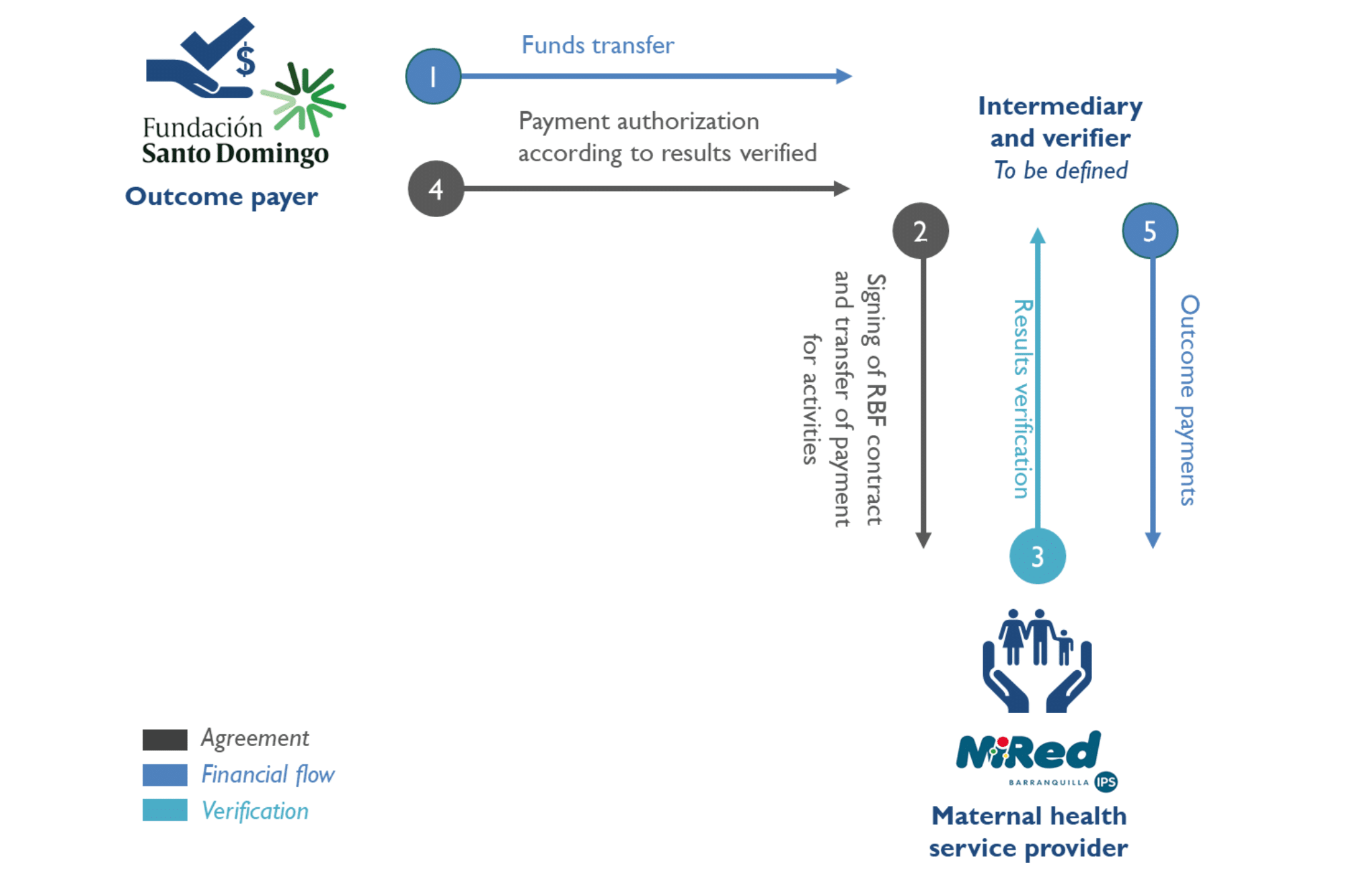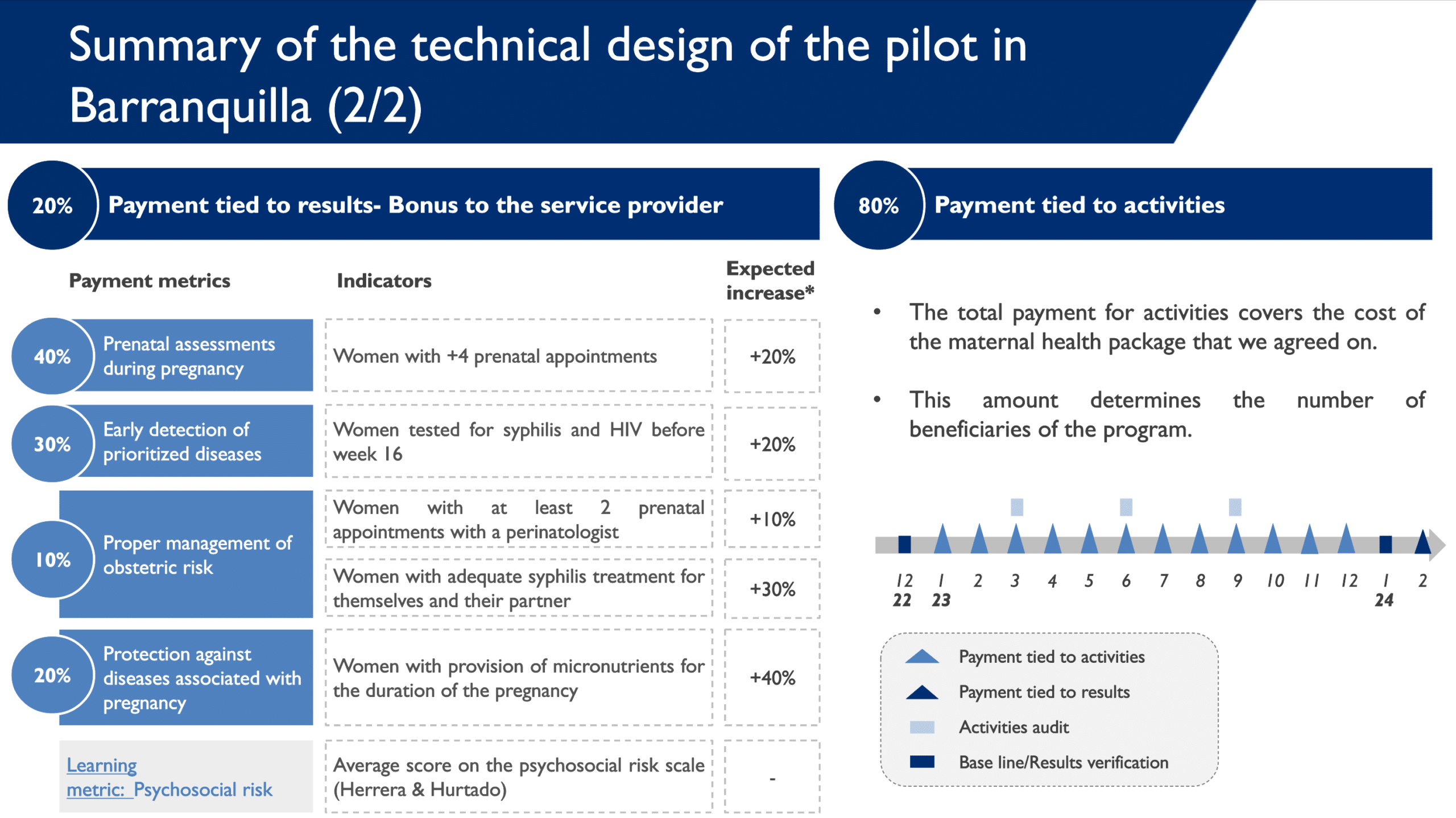
Instiglio partnered with USAID’s Local Health System Sustainability Project (LHSS), Fundación Santo Domingo, and the Barranquilla Mayor’s Office to develop a program that aims to improve the maternal health service for pregnant Venezuelan irregular migrants in Barranquilla using a Performance-Based Contract.
Country
Colombia
Timeline
July 2022 – September 2022
Type of Project
RBF Design or Implementation
Sector
Health
Project
Partners




project description
The program will target at least 500 migrants and focus on outcomes such as prenatal controls, early detection of prioritized diseases such as syphilis and HIV, proper management of obstetric risk, and protection against pregnancy-associated diseases. This will serve as a prototype for scale-up and decrease maternal morbidity and mortality.
In Colombia, maternal outcomes are much worse for Venezuelan migrants than for Colombian women. Maternal mortality is 70 per 100,000 for the Colombian population.
Barranquilla, a city on the Colombian coast, is among the non-border cities that have received the most Venezuelan migrants in the past years due to economic opportunities and the availability of social services. In 2021, 3500 children were born to Venezuelan mothers in the city, and the morbidity and mortality statistics reflect the national trends. Approximately 40% of maternal deaths were of migrant women.
The gap in outcomes between Venezuelan and Colombian women is mainly explained by the different care these groups receive. Migrant women with irregular status are especially likely not to receive the standard prenatal care Colombian women receive. While 80% of Colombian women have at least four parental check-ups before giving birth, 40% of Venezuelan women have this number of check-ups. International aid agencies and various health organizations have tried to address this gap, but traditional models have not achieved the desired outcomes.
Instiglio partnered with the Local Health Sustainability System, a program of USAID known in Colombia as Comunidades Saludables, Funcación Santo Domingo, and the Barranquilla mayor’s office to design a performance-based contract to improve maternal outcomes for Venezuelan migrants in Barranquilla. This contract structure incentivizes health service providers to identify and offer prenatal services early in pregnancy and to increase adherence to check-ups.
In 2023, at least 500 Venezuelan migrants will participate in this program, which will develop policy lessons and recommendations for replicating the model in other Colombian regions and the scale-up around the county.


